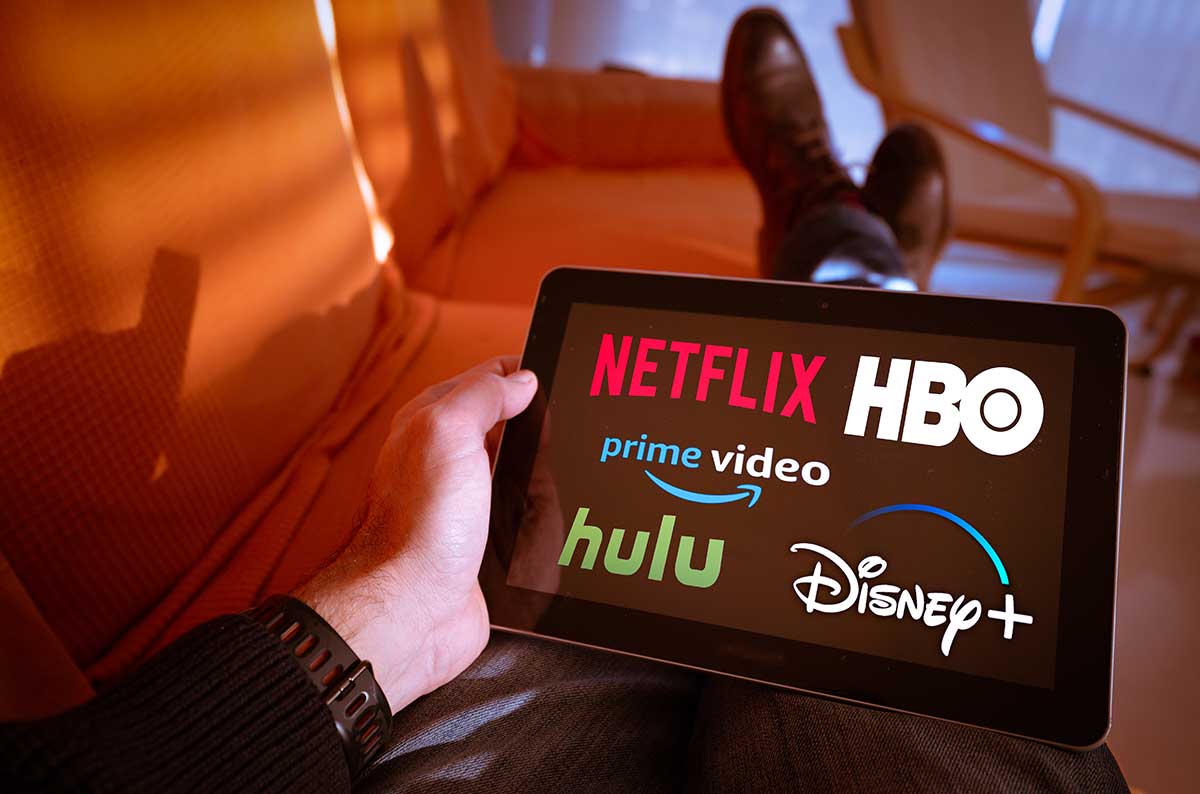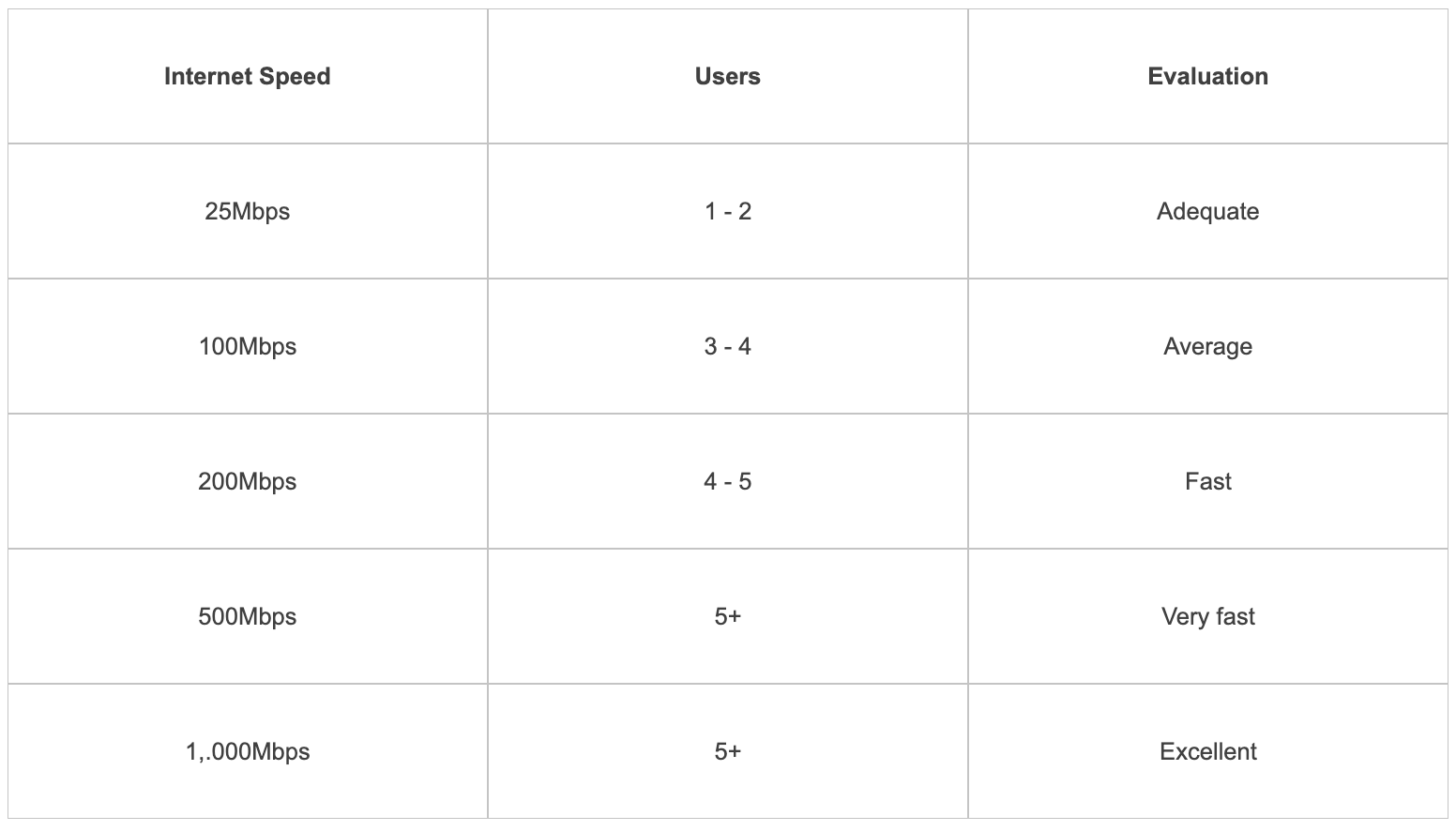What Internet Speeds Do I Need? Streaming Services

Matthew Harrington

Wondering what’s the best internet speed for streaming? Look no further. Homelinkd’s here to help you figure out why and how internet speed can affect your streaming experience.
We’re getting into the nitty gritty of what you can do to get better internet speeds, why it’s crucial for streaming, and where you can find the fastest connection for better streaming. Find out just what internet speeds you really need for streaming services.
What does internet speed mean and why is it important?
First, you’re going to want to know what internet speed really is.
With all the technical terms out there like “bandwidth”, “megabits” “latency” and “line speed” —figuring out what internet speed is, and what it means for you, can feel unnecessarily complicated.
Don’t get caught up in the jargon —here’s Homelinkd’s simple explanation.
While you may think your internet speed is determined by how many megabits per second (Mbps) you’re paying for, the real speed of your connection is actually all about bandwidth and latency.
Bandwidth is the amount of data (usually measured in gigabits or megabits) that can be sent to you per second. Bandwidth is essentially how much data you can get at any given point in time. So, if you’re paying for a 5Mbps line, you can receive up to 5 megabits of data per second. Simple, right?
In real-world terms, if you want to view an image online, the image should appear faster, if your line can download more data per second. So, if you have a 5Mbps line and your neighbor has a 10Mbps line —they should be able to download twice as much data as you can, per second.
If you’re looking for a more in-depth take, Plug Things In has a detailed breakdown of internet speed.
So, now that you’re up to speed on bandwidth, let’s talk latency.
Latency is the expected time delay when transferring data from one point to another (think from a Netflix server to your home). It’s measured in milliseconds and is also called ping rate on speed tests. Latency is responsible for how quickly data gets to you.
The best way to understand how bandwidth and latency affect your speed is to use a pipe as an example:
Bandwidth —how wide the pipe is (how much can get to you at any point in time.)
Latency —how fast the contents of the pipe (data) can get from one point to another.
So, large bandwidth + short latency = fast internet speeds.
Quick tip: While most people think internet and wi-fi are the same thing, they’re actually a bit different. Read more on our blog about the difference between internet and wi-fi, here.
It should come as no surprise that superior speed results in a better streaming experience. The faster your connection, the quicker you’ll be able to download images or video content. And, in the context of streaming, bandwidth and latency are king.
But what is a good internet speed for streaming?
Find out what internet speed you need for streaming
For most households, a line speed of 100 –200Mbps is ideal.
This line speed can handle almost any demands for about 2 –5 users.
Here’s a breakdown of what most internet speeds can support.

Is this speed going to be enough for you?
With the demands placed on internet connection today, and the major shift to online streaming services for our entertainment needs —internet speed has never been more important. d for streaming.
How much internet speed do I really need?
Is this speed going to be enough for you?
Our connection speed requirements are incredibly individual. While some households have light data requirements, households where streaming is the norm usually require better line speeds to get clearer content without the buffering.
Here’s a guide for general download speed requirements:
Email and web browsing: 1 -5Mbps minimum
Stream HD content: 15 -25Mbps minimum
Stream 4K content and play online games: 40 -100Mbps minimum
Stream 4K content, online games, and downloading large files: 200+ Mbps minimum
Online streaming service providers like Netflix, Hulu and Amazon Prime also offer insights about the ideal internet speed for streaming.
Netflix streaming requirements
Netflix, recommends a minimum download speed of 5Mbps to watch their streaming services in HD.
Hulu streaming requirements
While Hulu is also available in a range of different video qualities —which you can adjust to suit your internet speed —they recommend 16Mbps to stream their 4K content.
Amazon Prime streaming requirements
Amazon Prime recommends a minimum download speed of 1Mbps for their standard definition (SD) content, and 5Mbps for their high definition (HD) content.
Best internet speeds for streaming
While streaming experts like Netflix, Hulu and Amazon Prime give you a range of anything between 1Mbps -16Mbps to watch SD and 4K content online —
we recommend a line speed of more than 3Mbps if you’re streaming video content.
A line speed of 5Mbps will usually give you an adequate streaming experience, but if you want to watch in HD, Ultra HD or 4K, your bandwidth should be about 25Mbps.
Worst internet speeds for streaming
While the Federal Communications Commission (FCC) dictates all Americans must have access to a minimum broadband line speed of 3Mbps—your budget constraints can mean you’re only able to afford line speeds of 5Mbps or less. This can result in pixelated, blurry images, with loads of frustrating buffering.
Read how you can improve your internet speed for streaming on our blog.
Best internet providers for streaming
Now that you know what kind of internet speeds you need to stream online, you’re ready to start looking at Internet Service Providers that offer great deals and speeds.
Most popular internet streaming deal
CenturyLink
Line Speed: Up to 200Mbps
Data Caps:Unlimited
Pricing:From $49
Extras: Priced for life
Best internet speed for streaming
AT&T
Line Speed:Up to 1,000Mbps
Data Caps:1TB Unlimited
Pricing:From $50 -$50
Extras: Free WiFi, equipment & installation
Best budget internet service provider for streaming
Frontier
Line Speed: From 6 -1,000Mbps
Data Caps:Unlimited
Pricing:From $29 -$200
Extras: 2-year price lock on a 2-year contact month-to-month, or 1-year price lock.
Get the right internet speed: compare internet plans
While bandwidth and latency are important factors to consider when choosing your internet speed for streaming, affordability is also a crucial aspect of picking the right deal for your needs.
Today’s world has a bigger demand for online streaming services, so our need for larger bandwidth is changing too.
With Homelinkd, you can choose from our wide range of US service providers, comparing them by price, speed and location —so you can get the best deal to suit your streaming needs.










